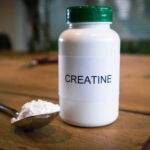An ovarian cyst is a condition where sacs form up in the ovary or on its surface filled with fluid. All females have two ovaries. Two ovaries are located on each side of the uterus; each ovary resembles the size and shape of an almond.
Eggs develop into a child in these two ovaries. While ovarian cysts are common, they are mostly harmless, causing little to no discomfort. They even go away without any treatment in a few months. However, sometimes ovarian cysts can be harmful and burst or become twisted. This can cause some severe issues.
To avoid that, one must contact a reputable and experienced specialist for cyst removal in Melbourne. This article here includes more information one might need to know about ovarian cysts.
Who is usually affected by ovarian cysts?
Although anybody with ovaries can develop ovarian cysts, it still depends on your chances of developing them. The chances are based on:
Age: For somebody close to the menopause period but has not yet gone through it might face the problem of ovarian cyst.
Pregnancy: The condition is more likely to develop during pregnancy.
Medical Conditions: People with hormone problems or endometriosis are more likely to develop ovarian cysts. Moreover, if somebody takes medicines to help with ovulation, they might also face the issue.
Pelvic infection: When somebody has a severe pelvic infection, the infection can spread to her ovaries and cause an ovarian cyst.
Vaginal infections are also common in women and products from myvluxe.com are really beneficial in dealing with those infections.
Symptoms of ovarian cyst
Most ovarian cysts are known not to cause any symptoms. However, some of the common symptoms noticed in people with ovarian cysts include:
- bloating or pressure in the lower abdomen
- Feeling of tenderness in breasts.
- Painful feelings in the lower abdomen that might come and go. You may also feel a dull ache in your abdominal area with some pressure of heaviness.
- Vomiting or nausea
- Unstable menstrual cycle
The most dangerous symptom is a sharp pain in the lower abdominal area. Especially if the pain is accompanied by fever and nausea, it is essential to seek medical assistance immediately. It could symbolize an ovarian cyst or an even worse medical emergency. For such cases, accurate diagnosis is essential as soon as possible.
Possible complications with ovarian cyst
Although the chances are low, some complications can occur with ovarian cysts. These complications include:
- Cyst rupture: The cyst always carries the fear of being ruptured, which can cause unbearable pain and even bleeding inside the pelvis. Especially as the size of the cyst increases, so does the chance of rupture. Any pelvic activity, like vaginal sex, can also lead to rupture in such cases.
- Torsion: When a cyst is large enough, it can force the ovary to a different position. This movement will increase the chance of painful ovary twisting, also known as ovarian torsion. When this happens, one suffers severe pain in the pelvic region accompanied by vomiting and nausea. Torsion can even stop or reduce the blood flow to the ovary, which can cause serious problems.
Diagnosis for ovarian cyst
Removal of ovarian cysts does not take more than an experienced gynecologist who will conduct a pelvic exam to feel any lumps in the pelvis or use an ultrasound to do the same. They can also perform laparoscopy, where the expert inserts a camera in the abdomen to check for a pelvic cavity. If they notice a cyst there, they will remove it immediately. Laparotomy is performed in case the cyst is too large to be removed with a standard procedure.
Can you do anything to prevent ovarian cysts?
With ovarian cysts being harmless, prevention is not always a concern in people’s minds. But, if it is, you may know that there is no such thing you can do to prevent it. You should go for regular pelvic exams if you notice any symptoms to ensure everything is okay and, if not, can immediately be treated.
Read Also
- Why the Keto Diet Works for Some People—and Fails Dramatically for Others: An Ayurvedic Breakdown for Modern Healthcare
 The keto diet has dominated weight-loss culture for years. For some people, it produces rapid fat loss, stable energy, and improved mental clarity. For others—especially those who gain weight easily—it leads to burnout, digestive distress, rebound weight gain, high cholesterol, and a metabolism that feels slower than before. Healthcare often frames this as a discipline… Read more: Why the Keto Diet Works for Some People—and Fails Dramatically for Others: An Ayurvedic Breakdown for Modern Healthcare
The keto diet has dominated weight-loss culture for years. For some people, it produces rapid fat loss, stable energy, and improved mental clarity. For others—especially those who gain weight easily—it leads to burnout, digestive distress, rebound weight gain, high cholesterol, and a metabolism that feels slower than before. Healthcare often frames this as a discipline… Read more: Why the Keto Diet Works for Some People—and Fails Dramatically for Others: An Ayurvedic Breakdown for Modern Healthcare - How to Choose the Best Assisted Living Facility for Seniors
 Are you looking for the right assisted living facility for a senior loved one? Choosing a place can feel overwhelming. There are many factors to consider, from care services to the environment. Safety, comfort, and social opportunities play important roles in daily life. Each senior has unique needs and preferences that must be met. Understanding… Read more: How to Choose the Best Assisted Living Facility for Seniors
Are you looking for the right assisted living facility for a senior loved one? Choosing a place can feel overwhelming. There are many factors to consider, from care services to the environment. Safety, comfort, and social opportunities play important roles in daily life. Each senior has unique needs and preferences that must be met. Understanding… Read more: How to Choose the Best Assisted Living Facility for Seniors - Burn Smart, Not Hard; Shape Burn: Clean Protein for Weight Management
 You want to feel light, strong, and confident. You don’t want crash diets or fake promises. You need a plan that works with your body, not against it. That’s where Shape Burn comes in. You can burn fat without losing strength. You can eat better and stay full. You can manage weight in a way… Read more: Burn Smart, Not Hard; Shape Burn: Clean Protein for Weight Management
You want to feel light, strong, and confident. You don’t want crash diets or fake promises. You need a plan that works with your body, not against it. That’s where Shape Burn comes in. You can burn fat without losing strength. You can eat better and stay full. You can manage weight in a way… Read more: Burn Smart, Not Hard; Shape Burn: Clean Protein for Weight Management - Creatine Basics: How Much Is 5g, How Much Water You Need, and Whether Pills or Powder Work Better
 If you’ve ever walked into a supplement aisle or scrolled through fitness TikTok, you’ve probably seen people talking about creatine — usually with a shaker bottle in hand and promises of better workouts and faster gains. And honestly? They’re not wrong. Creatine is one of the most researched and effective supplements for muscle strength, recovery,… Read more: Creatine Basics: How Much Is 5g, How Much Water You Need, and Whether Pills or Powder Work Better
If you’ve ever walked into a supplement aisle or scrolled through fitness TikTok, you’ve probably seen people talking about creatine — usually with a shaker bottle in hand and promises of better workouts and faster gains. And honestly? They’re not wrong. Creatine is one of the most researched and effective supplements for muscle strength, recovery,… Read more: Creatine Basics: How Much Is 5g, How Much Water You Need, and Whether Pills or Powder Work Better - Understanding Breast Cancer in Men: Key Facts and Symptoms
 Breast cancer is often thought of as a disease that only affects women. However, men can develop it too. Although it is less common, early detection and awareness are important. Read on to learn key facts, symptoms, and ways men can take action to protect their health. How Common Is Breast Cancer in Men? Breast… Read more: Understanding Breast Cancer in Men: Key Facts and Symptoms
Breast cancer is often thought of as a disease that only affects women. However, men can develop it too. Although it is less common, early detection and awareness are important. Read on to learn key facts, symptoms, and ways men can take action to protect their health. How Common Is Breast Cancer in Men? Breast… Read more: Understanding Breast Cancer in Men: Key Facts and Symptoms






